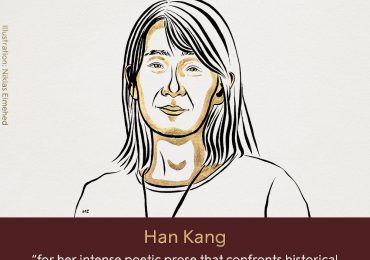Comment for The JRB’s inaugural Fiction Issue by novelist Andrew Miller.
One of the most interesting aspects of the political shocks of the last eighteen months is the inability of our media to adapt to new realities. Few publications or analysts currently do anything other than what they did pre-Brexit, pre-Trump. In fact, the most obvious change has not been more insightful, balanced or reflective coverage, but an increasing tendency to report on Trump-land, Brexit-land and other alien places like the colonists of old reported on ‘darkest Africa’. The world of the bizarre other is brought into view via field trips and excursions, their subjects reported on as oddities.
The unacknowledged irony of this dynamic is often foundational to the reporting itself. To wit: intellectual empathy, which is required for successful reporting of this kind, turns out to be in extremely short supply, as evidenced, not only by the content of the reports, but by the very seeking out of the content in the first place.
Intellectual empathy: tough to achieve at present, because we all have too many memes and articles and facts and fake content zinging through our heads. We thus struggle enormously to slow down enough to do any of the deep thinking required to expand our view of the world around us.
And what does this have to do with fiction?
It’s my belief that fiction offers a precious way for us to approach this tallest of hurdles of our age, the necessary return to intellectual empathy.
For it is fiction that allows humans to communicate through time and space, and to appreciate alien points of view. We defy death when we read and write books; through novels we speak to each other over the span of hundreds of years.
But fiction, in South Africa at least, finds itself in deep trouble.
Before I was lucky enough to win the Dinaane Debut Fiction Award in 2015, I set about trying to get my work published. It was a strange experience. I was told repeatedly by leading industry figures that no one ‘wants’ fiction. A particularly important figure suggested to me that the best route to a fiction career would be to get a regular radio show. Only on the foundation of public personality might there be a chance to publish fiction regularly. For South African publishers, the question is never how many novels will be sold, but rather how the loss of publishing a novel can be minimised.
So, shouldn’t we just let fiction die a natural death? Why is it important that we continue to read fiction, and to write it and publish it? To these questions the answers are ‘no’, and ‘at least two reasons’. First, many publishers are missing a trick when it comes to local fiction, as demonstrated both by the success of Dudu Busani-Dube’s Hlomu the Wife series and a recent article by Zukiswa Wanner, who gives our industry proper what-for.
Second, and more broadly, digitally-infused humans struggle enormously to remove themselves from quick-fire thinking—what the cognitive scientists Daniel Kahneman and Amos Tversky call System 1 thinking. When we’re in quick-fire, System 1 mode, our brain uses a plethora of heuristic devices to make instant judgements and decisions. Often, these decisions feed into the many misleading narratives we invent to make sense of the madness as we go about our daily lives.
But when we deal with fiction, our brain is forced into its lowest, strongest gear. Fiction operates in a different realm from reportage and analysis. To read stories we must fill in an enormous number of blanks. We are not able to skip along the surface of the words or the ideas; we are forced to create a picture, including a full range of emotional states and concepts, in our minds. Equally—and even when we read stories we don’t like—we are forced to be empathetic in the intellectual sense. There is no other way to read a fictional story than to actively place yourself within its frame of reference. Fiction, then, offers a rare opportunity to flex the muscle of intellectual empathy.
Viewed from this perspective, I see fiction as a little hand-pump that keeps the life support machine of intellectual empathy switched on.
So—keep writing. All the people who seek to tell stories through fiction—stories that collectively reflect the enormous complexity of our time—ultimately, it is you who keep our little hand-pump turning. We need to you to keep writing, and to keep on submitting your work. Thank you for your efforts, even as they may go unrewarded. They matter.
- Adapted from Andrew Miller’s keynote speech at the 2017 Dinaane Debut Fiction Award ceremony. Miller is the author of Dub Steps, which won the Dinaane Award in 2015. He sat on the judging panel for this year’s award, which was not given.






The charm of fiction is its versatility—it can be a source of entertainment, enlightenment, or escape, depending on our needs.